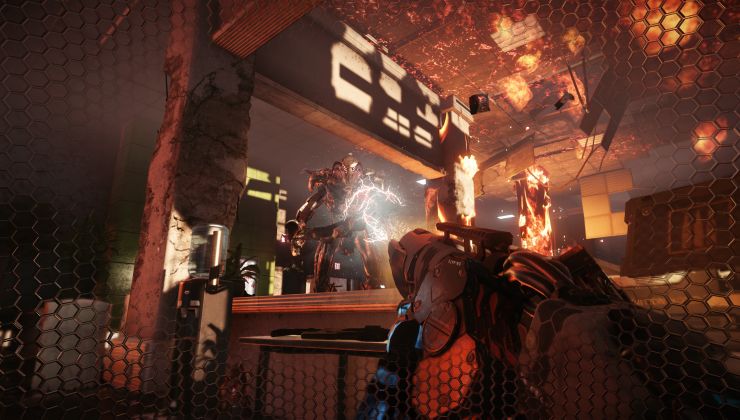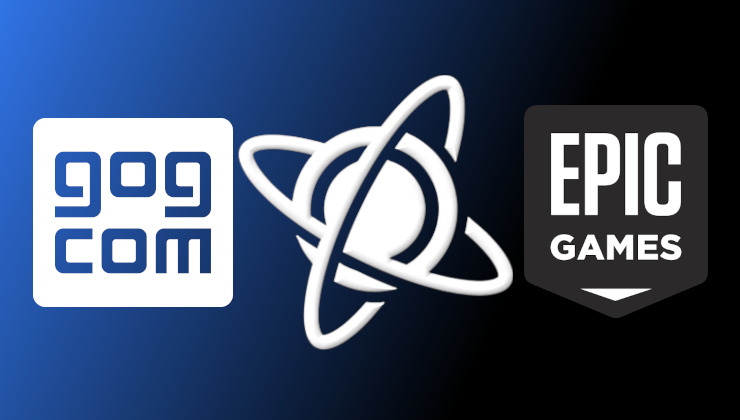Doing the rounds across the net right now is a small update to the Steam checkout process when you're making a purchase, to make it clear you don't own what you buy.
Valve added a note (I don't entirely know when), to mention how "A purchase of a digital product grants a license for the product on Steam" with a link to the Steam Subscriber Agreement. As you can see in my shot below taken today when testing a purchase:
Of course, there's already a lot of misinformation going around about this from people on social media. To remind everyone: this has always been the case. The Steam Subscriber Agreement says (if you bothered to read it, you all read agreements right?) "The Content and Services are licensed, not sold. Your license confers no title or ownership in the Content and Services".
So while this has always been the case, it is still somewhat buried because most people just quickly scroll through these things to get access to what they want. At least now, Valve has put it upfront every time you make a license purchase on Steam.
Why is all this happening now? You can likely thank a new California law on this (AB 2426) that is summarised as:
Existing law makes it unlawful for any person doing business in California and advertising to consumers in California to make any false or misleading advertising claim. Existing law makes a person who violates specified false advertising provisions liable for a civil penalty, as specified, and provides that a person who violates those false advertising provisions is guilty of a misdemeanor.
This bill would, subject to specified exceptions, additionally prohibit a seller of a digital good from advertising or offering for sale a digital good, as defined, to a purchaser with the terms buy, purchase, or any other term which a reasonable person would understand to confer an unrestricted ownership interest in the digital good, or alongside an option for a time-limited rental, unless the seller receives at the time of each transaction an affirmative acknowledgment from the purchaser, or the seller provides to the consumer before executing each transaction a clear and conspicuous statement, as specified. By expanding the scope of a crime, this bill would impose a state-mandated local program.
GOG took the opportunity to jump into this as well on Twitter / X with a post suggesting they will be adding a note onto their checkout process too, to say that their offline installers they offer cannot be taken away from you:
The new law doesn't seem to actually affect GOG, since in the main bill text it does specifically note it does not apply if they have access to a permanent offline download. However, it should be noted GOG also sell you a license as per their own terms. So while the new bill may not apply to them, this little jibe only really properly works if people are backing up all of their GOG purchases. Since you only get a license, rights holders could still technically get GOG to entirely remove them.
I should also note that this situation is the same for most physical media too, it's not a digital distribution only issue for consumers. Much like GOG's offline installers, you have access to your physical media whenever you want, but you still only get a license for the media you have on disc - you do not own it.
Over to you in the comments, what are your thoughts?
If Steam dies, your access dies too to games that use steam DRM. Only those DRM free in the steam store that are downloaded already will continue to work.
Look, if Steam ever dies, it will be a problem for 100+ million people. I am 100% sure someone makes a small program that emulates Steam DRM and you can use it to run any of the downloaded games that used to rely on Steam client calls. Given the scale, it might even be government-sanctioned, lol.
I'd be more afraid Valve could be going to be publicly traded.
Due to the consequences, and the less small likeliness.
Look, if Steam ever dies, it will be a problem for 100+ million people. I am 100% sure someone makes a small program that emulates Steam DRM and you can use it to run any of the downloaded games that used to rely on Steam client calls. Given the scale, it might even be government-sanctioned, lol.For non-DRM titles that still depends on the Steam APIs there's already Goldberg:
https://gitlab.com/Mr_Goldberg/goldberg_emulator
When you own a license, you own the right to use/play the software/game but you do not own the software/game itself.
Even with physical media, you may own the installation media but you do not own the software on that media. Much more complex than a simple physical ownership model.
But then, technically the music industry (vinyl, cassette, CD, etc.) was like this well before the advent of digital media ... we owned the media but not the music itself.
I think that software licensing confuses a lot of people, who are expecting an ownership model such as you get when you purchase something like a hammer.Really important to know the difference.
When you own a license, you own the right to use/play the software/game but you do not own the software/game itself.
Even with physical media, you may own the installation media but you do not own the software on that media. Much more complex than a simple physical ownership model.
But then, technically the music industry (vinyl, cassette, CD, etc.) was like this well before the advent of digital media ... we owned the media but not the music itself.
Case in point, [the folks who paid $3m for a Dune book, thinking they also bought the movie rights](https://www.ft.com/content/e83fe16f-fb28-4795-919e-4f1d314e6794).
I think that software licensing confuses a lot of people, who are expecting an ownership model such as you get when you purchase something like a hammer.. . . or a physical book. Which is not unreasonable.
Complicating things in the other direction, software licensing seemingly "confuses" a lot of software licensers, who often claim rights in their licenses that they are not, in most jurisdictions, legally entitled to claim. Just because some software company puts "use of this software entitles us to your firstborn child as slave labour" deep in their license doesn't make it real or enforceable even if you click.
All this license talk makes me miss the days of playing games without worrying about losing access to them. I know GOG exist but I'm thinking more in terms of the physical media days in the PS2 era and before that didn't require network access to authenticate a license to play.Says the naive young one who never lost the paper cover with the printed cd-key for a PC game, so never had to download a trojan-infested keygen.exe to replay their owned PC Games in the original midia, after a yearly reformatting of Windows.
Or, much older and crazier:
anyone ever played Prince of Persia far enough to get to those rooms with the deadly potions linked to numbers/letters? Those were meant as a way to verify you had a printed copy of the game's handbook (At the bottom of the screen, it should say "Word X Line Y Page Z"... so you grab the handbook and check for the correct letter and drink the non-deadly potion... proceed to next level)
Last edited by Marlock on 14 Oct 2024 at 11:41 pm UTC
If Steam dies, your access dies too to games that use steam DRM. Only those DRM free in the steam store that are downloaded already will continue to work.You'll be happier after following this link
https://gitlab.com/Mr_Goldberg/goldberg_emulator/-/blob/master/README.md?ref_type=heads
Actually, I never had issues with losing the CD keys on the PC games I bought back then and didn't need a keygen file at all. Also, I play games on consoles from NES to the current systems, but I just remember how it was back in the days where you didn't have to think about network connections and licenses to play a game when you bought it on cartridge, CD and DVD until the PS3/Xbox 360 came along and changed it for the worse.All this license talk makes me miss the days of playing games without worrying about losing access to them. I know GOG exist but I'm thinking more in terms of the physical media days in the PS2 era and before that didn't require network access to authenticate a license to play.Says the naive young one who never lost the paper cover with the printed cd-key for a PC game, so never had to download a trojan-infested keygen.exe to replay their owned PC Games in the original midia, after a yearly reformatting of Windows.
Last edited by ToddL on 15 Oct 2024 at 3:50 am UTC
Prince of Persia hails all the way back from 1989 with the handbook as a digital copy deterrent
Warcraft II (1995), Diablo (1997) and Starcraft required a RegKey on install and/or first run
You are correct that it was more common back then for a local copy to just work, without need to phone home to activate or with part (sometimes most) of a game being hosted on a mandatory server... but it wasn't always a simple matter of keeping the files or even the original media intact
Prince of Persia hails all the way back from 1989 with the handbook as a digital copy deterrentYou can find earlier examples as well. Some C64 (and Spectrum) releases had code cards/sheets inside the cassette sleeves in the early eighties. One I remember fondly is Jet Set Willy from 1984. Others had actual copy protection code such as California Games (the Epyx US floppy release) from 1987.
As far as i know, you still need the steam client to restore those backups, which in a non internet location, if i were to think i can just restore those backups on a PC, I would need to download the steam client on said PC first (Not to mention the client has to download all it needs for its runtime when first installing)That's Steam's "backup" button you're talking about.
Ignore it, go to the current steam library folder, find the subfolder named with the game's SteamID and zip a copy of it to some backup storage...
...and the proton prefix folder too if it's a windows game.
The game executable should work if run directly, without steam. And if it doesn't, there's Goldberg Emulator to fulfill the game's Steam API needs without Steam too.
After that, only games with actual DRM or a game-specific server component missing will refuse to work.
disclaimer: i pay for my games on Steam and I do not use this method for piracy
Shame GOG's Linux support is rather... lacking. Wine not withstanding.
Could have fooled me as I own hundreds of Linux games from GOG. I find Steam's stance on DRM free to be lacking. I know you were trying to take a dig at GOG's lack of a Linux client but I am one of the people who don't want a client. GOG's offline installers give me exactly the experience I want.
That isn't how IP works. You don't 'own' anything you buy outside of the public domain or CC so long as someone else' IP is an integral component of whatever.
GOG - from what I recall - doesn't let you download content that has been removed from their storefront like how steam does, and they rely on the idea that their DRM-free policy is what makes the content always accessible to users even when they are no longer available on GOG.
GOG does allow prior purchases to be downloaded after the game has been dislisted.
The only(?) reason for not being able to download the content in your account is if it was removed by GOG.
There have only been a few instances where "purchased" content was removed from user's accounts.
Off the top of my head, "Timberborn" demo was removed; an update for "Alan Wake" that removes a song from the game.
You can even claim a gifted game code after that game was delisted. This is assuming the game code has not expired. There are GOG forum threads specifically for gifted game codes.
Last edited by solar_dome on 16 Oct 2024 at 1:50 am UTC
Interesting, how do you prefer to install them? I've had mixed results with Lutris and Bottles. For some games it's excellent, others - which should run via Wine - seem to be hopeless.
And I'm a little wary of the install scripts on lutris.net, I found one of them downloading some shady stuff.
Shame GOG's Linux support is rather... lacking. Wine not withstanding.
Could have fooled me as I own hundreds of Linux games from GOG. I find Steam's stance on DRM free to be lacking. I know you were trying to take a dig at GOG's lack of a Linux client but I am one of the people who don't want a client. GOG's offline installers give me exactly the experience I want.
I usually use Heroic Game Launcher to launch the game and configure it to use DXVK/VKD3D/Esycn/Fsync/etc. To install them I just right click and choose to open the installer with Wine. I have had games work better than Proton this way and had others work worse. I use Lutris for native Linux games but prefer HGL for Windows games.
Shame GOG's Linux support is rather... lacking. Wine not withstanding.
Could have fooled me as I own hundreds of Linux games from GOG. I find Steam's stance on DRM free to be lacking. I know you were trying to take a dig at GOG's lack of a Linux client but I am one of the people who don't want a client. GOG's offline installers give me exactly the experience I want.
That isn't how IP works. You don't 'own' anything you buy outside of the public domain or CC so long as someone else' IP is an integral component of whatever.
I have the install files on my HDD and there is no taking them back. I can do with them as I please. Possession is 9/10 of the law as they say. They can come at me if they want for license crap but good luck finding out what I do with files on my personal system. They can ban my GOG account but that only screws me for future updates. That's more freedom than most Steam users have.
Interesting, how do you prefer to install them? I've had mixed results with Lutris and Bottles. For some games it's excellent, others - which should run via Wine - seem to be hopeless.
And I'm a little wary of the install scripts on lutris.net, I found one of them downloading some shady stuff.
Shame GOG's Linux support is rather... lacking. Wine not withstanding.
Could have fooled me as I own hundreds of Linux games from GOG. I find Steam's stance on DRM free to be lacking. I know you were trying to take a dig at GOG's lack of a Linux client but I am one of the people who don't want a client. GOG's offline installers give me exactly the experience I want.
I usually use Heroic Game Launcher to launch the game and configure it to use DXVK/VKD3D/Esycn/Fsync/etc. To install them I just right click and choose to open the installer with Wine. I have had games work better than Proton this way and had others work worse. I use Lutris for native Linux games but prefer HGL for Windows games.









 How to play games from GOG and Epic Games on Linux, SteamOS and Steam Deck
How to play games from GOG and Epic Games on Linux, SteamOS and Steam Deck How to get Battlefield 3 and Battlefield 4 online working on Linux, SteamOS, Steam Deck
How to get Battlefield 3 and Battlefield 4 online working on Linux, SteamOS, Steam Deck